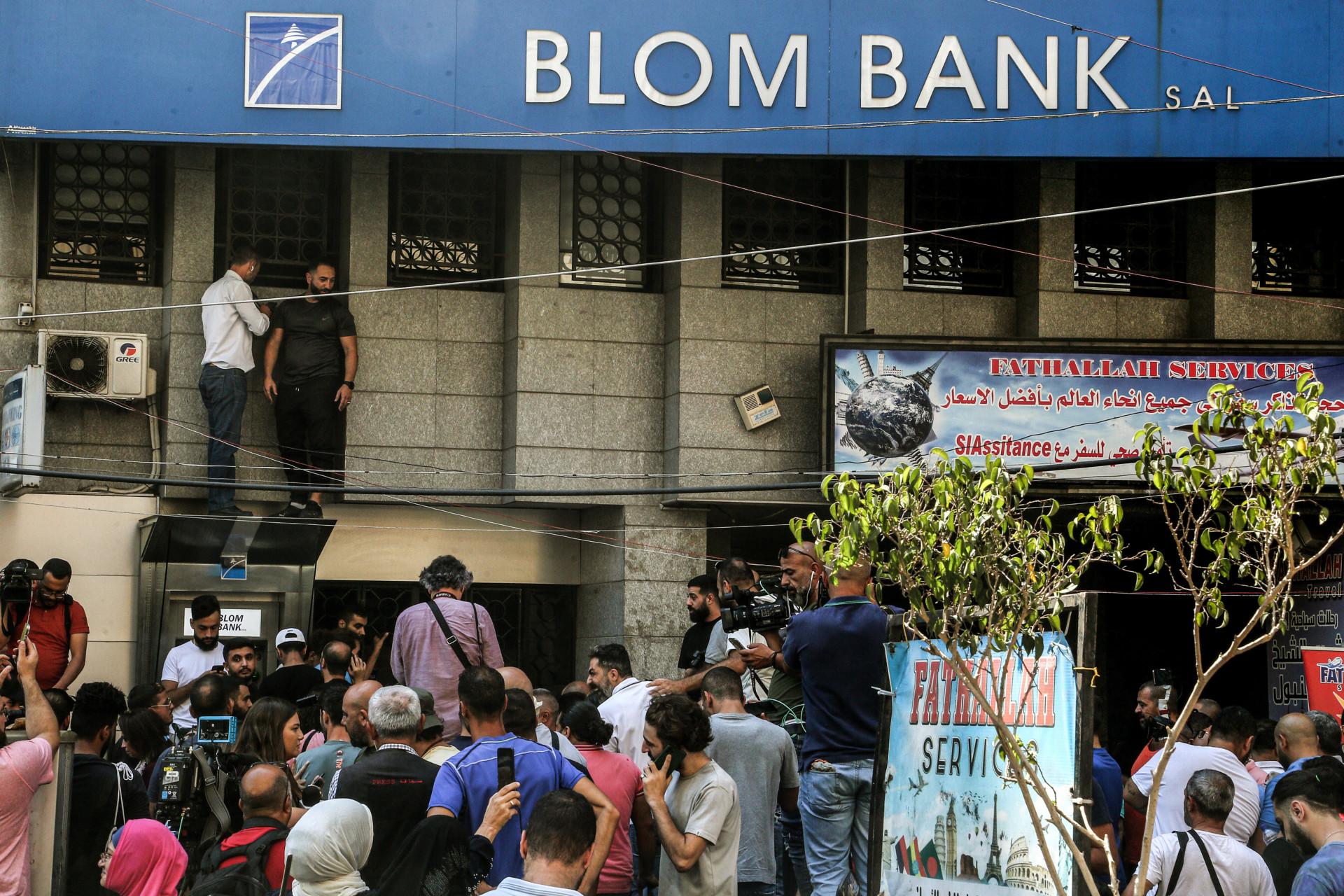What is the Crisis?
An article in the New Lines Magazine written by Anthony Elghossain details the current spike in bank robberies in Lebanon due to the intense financial crisis rampaging through the country. The people rob the banks not out of greed, but out of a need for money to provide for themselves or for others. Their acts are out of desperation. Additionally, some of the people robbing banks demand their own money and deposits.
There have been protests about the financial crisis, some peaceful and some not, along with these robberies. The article outlines the severity of the financial situation in Lebanon as Elghossain provides facts and figures that show that 80% of Lebanese people live in poverty (90% if they are Palestinian or Syrian), and there is over a 40% unemployment rate in Lebanon.

Relation to Other Media and Regional Developments
This article asks for an awareness to the complex situation at hand. It could be easy to see robbers simply as criminals, but the article asks people to look at the financial problem and see how that generates motive for people to rob, not out of greed or malice, but out of necessity. When I begin to look more closely at other issues reported on Lebanon, I will need to know more about other issues in the region and how they may drive problems or developments in other areas. For instance, in this article the economic situation of the country influenced crime. I will need to develop a comprehensive understanding of the region and major matters as a whole before I can focus on one particular issue so that I can understand the complexities at work and how different matters across different areas of study intersect to cause current developments.
The Article’s Stance
This article represents a piece of engagement journalism– the journalist takes a clear stance against the Lebanese government by depicting them as indifferent, power-driven, and as an institution that is at the root of the financial problem. The journalist holds no punches against the Lebanese government.
The journalist largely sides with the robbers in the article. However, Elghossain does allow for nuance in his piece. He mostly paints the Lebanese robbers as victims of the government and of the circumstance in Lebanon, but he does recognize that by committing these robberies people are leaving less money for others who are in similar situations.
The activist approach of the article demonstrates passion that I imagine will likely be seen in other media reporting on Lebanon. The intense circumstances will likely be reported with activist motives and a clear stance on the issues currently arising.
Moving Forward
As I continue to study the region I want to be aware of how this financial situation continues to develop. It will be crucial to see how it may cause further increases in crime, poverty, and social and political dissent. Furthermore, this article has reminded me to stay aware of a wide variety of crucial matters in the region, so I know how and why certain developments arise. Furthermore, I expect to see more activist journalism, and I would like to study how and if these activists journalists are making impacts in the region. Are they making political leaders aware of the issues (if they aren’t already)? Are they reflecting the voices of the people? Are they encouraging further activism? And are they truly bringing about significant change? These are all things this article has taught me to both educate myself on and keep an eye out for moving forward.
Naamani, Marwan. Lebanese activists gather outside a local bank, after an armed man stormed the branch demanding access to his deposits. In “Bank ‘Robberies’ Are a Symptom of Deeper Crises in Lebanon.” https://newlinesmag.com/newsletter/bank-robberies-are-a-symptom-of-deeper-crises-in-lebanon/
One response to “Banking Robbing and Financial Crisis in Lebanon”
This is very thoughtful and engaging: nice work.
One thing to look at is the nature of the publication where this appeared. Newlines tends to feature engaged or activist journalism more than some others covering the region. It may be interesting to think about questions like ownership and consider how other publications with different owners or professional cultures discuss the same set of issues in Lebanon.